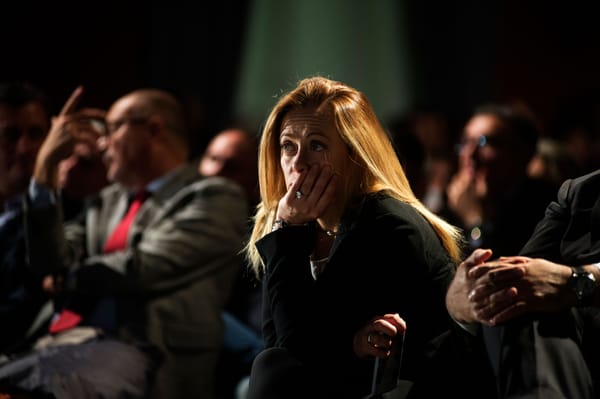Ennio Flaiano, the great Italian screenwriter, used to boast of the generosity of his compatriots, who were “always willing to rush to the aid of a winner.” Once Giorgia Meloni took the lead in the Italian polls in July, she was unlikely to have it wrested from her. Meloni’s Brothers of Italy party leads a three-party conservative bloc that last night took 44 percent in Italy’s national elections. It is enough to secure majorities in both houses and make Meloni Italy’s first woman prime minister. The coalition includes Forza Italia, the party of former Prime Minister Silvio Berlusconi, known better to tabloid readers for the wild orgies he hosted than the mild governments he led. It also includes the League, led by Matteo Salvini, whose hard line against mass immigration from Africa briefly made him one of the most popular Italian politicians since World War II. To an Italian electorate that has been seething with populist rage for years, the conservative threesome was a winning combination.
But it is La Meloni who is the biggest surprise. Almost exactly a century after Oct. 28, 1922, when fascism’s inventor, Benito Mussolini, brought his movement to power in the March on Rome, Meloni has won power at the head of a party with a connection to Mussolini’s legacy. It is hard to say what the term “fascist” means today—if, indeed, it means anything at all. Confronted with democratically elected politicians from Viktor Orbán to Mitt Romney and democratic initiatives from Brexit to school prayer, the international media has emptied its cartridge of ideological slurs, hitched to prefixes like “ultra-,”, “hyper-,” “hard-,” and “extreme-.” When the Financial Times describes Meloni as “far-right,” readers will suspect, perhaps rightly, that someone is crying wolf.
“The closer you get to Meloni, the harder she gets to read.”
The Italian media, by contrast, have treated the rise of Meloni with equanimity. This is partly due to the role she played during the last government. In 2020, progressive politicians used the promise of €200 billion in Covid relief funds from their EU allies to coax all but one of Italy’s parties into backing a government of national unity led by the investment banker and former European Central Bank chief Mario Draghi. Only Meloni refused to go along. Her party stood alone in opposition. And yet she had from the very beginning a better relationship with Draghi than many of the party leaders who served him. She played cards with him, discussed the stakes for Italy of financial stability, and, after Russia’s invasion of Ukraine, committed her party to a position of maximalist pro-Ukrainian hawkishness in what is still the most Russophile country in Western Europe. The closer you get to Meloni, the harder she gets to read: Is she a secret extremist, dissembling on behalf of her party? Or is she a secret centrist, selling her party out?
